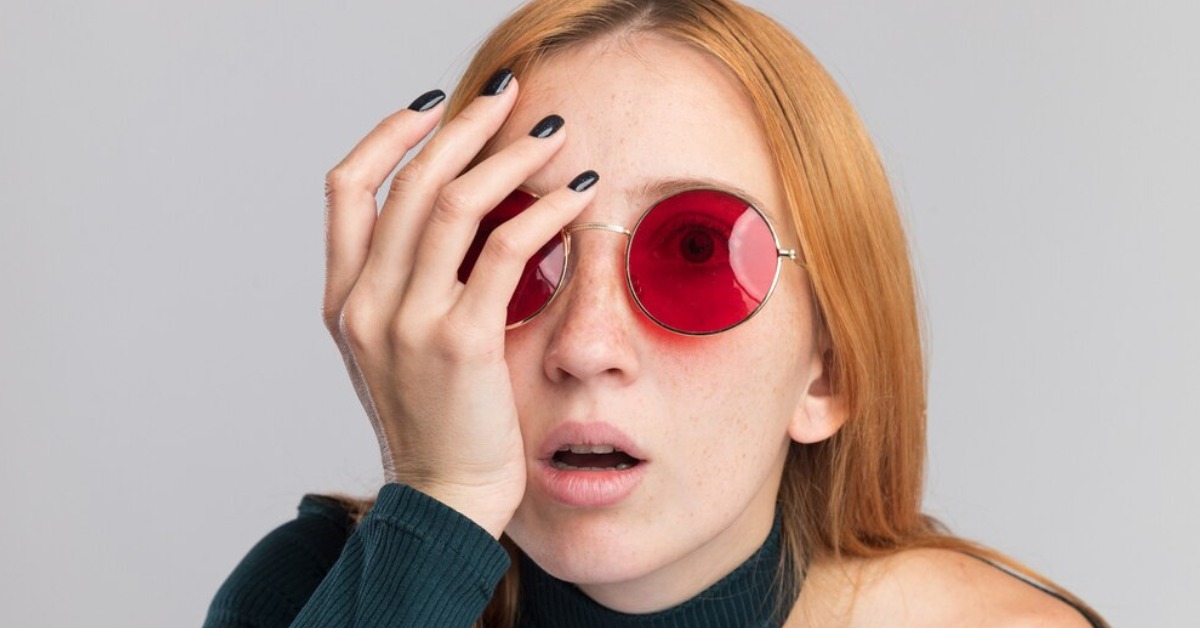Photophobia, commonly known as light sensitivity, is a condition in which an individual becomes highly sensitive to light, experiencing discomfort, pain, or irritation when exposed to light sources. This condition is often associated with eye-related problems, but it can also be a symptom of other underlying health issues. Photophobia can vary in severity, and in some cases, it can significantly affect a person’s quality of life.
In this article, we will discuss the symptoms, causes, diagnosis, and treatment options for photophobia, as well as how it can be managed in Indore.
Symptoms of Photophobia
The symptoms of photophobia can vary from person to person and depend on the severity of the condition. Some common symptoms include:
- Eye Pain and Irritation: Exposure to bright light may cause pain, burning, or irritation in the eyes.
- Eye Fatigue: Prolonged exposure to light can lead to eye strain and fatigue.
- Tears: Excessive tearing may occur as a natural response to bright light.
- Stinging Sensation: A stinging or burning sensation in the eyes can occur when exposed to light.
- Headaches: In some cases, photophobia can lead to headaches or worsen existing ones.
- Blurred Vision: People with photophobia may experience blurred vision when exposed to bright light.
Causes of Photophobia
Several factors can contribute to photophobia, ranging from eye-related conditions to neurological issues. Some common causes include:
- Eye Infections or Inflammation: Eye conditions like infections or inflammation can make the eyes more sensitive to light.
- Conjunctivitis: This eye infection, commonly known as pink eye, causes redness, irritation, and increased light sensitivity.
- Uveitis: This is the inflammation of the middle layer of the eye, which can result in light sensitivity.
- Migraine and Headaches: Photophobia is often a symptom of migraines. Bright light can trigger or worsen a migraine, making light sensitivity a common experience for migraine sufferers.
- Dry Eyes: People with dry eye syndrome (a condition where the eyes do not produce enough tears) may experience light sensitivity as one of the symptoms.
- Refractive Errors: Conditions like myopia (nearsightedness) and hypermetropia (farsightedness) can also contribute to photophobia due to abnormal focus and strain on the eyes.
- Neurological Conditions: Photophobia can also be associated with neurological conditions, such as brain injuries, tumors, or certain disorders affecting the nervous system.
- Other Medical Conditions: Systemic conditions like diabetes or multiple sclerosis may also lead to photophobia as a secondary symptom.
Diagnosis of Photophobia
To diagnose photophobia, a healthcare provider will assess the symptoms, perform a physical examination, and possibly recommend additional tests to identify the underlying cause. If you are experiencing light sensitivity, it is essential to seek help from a qualified healthcare provider in Indore for proper diagnosis and treatment. The following methods may be used for diagnosis:
- Medical History and Physical Exam: The doctor will first review your medical history and symptoms, asking about your eye health, any previous conditions, and other relevant factors.
- Eye Examination: An eye examination will be conducted to assess the health of your eyes, check for infections, and determine any vision problems.
- Blood Tests and Imaging: If a neurological condition or other systemic issue is suspected, blood tests and imaging (like an MRI or CT scan) may be recommended.
- Referral to a Specialist: If the underlying cause of photophobia is unclear, your doctor may refer you to an ophthalmologist or neurologist for further evaluation.
Treatment for Photophobia
The treatment for photophobia depends on its underlying cause. Managing the symptoms and addressing the root cause is essential for effective relief. Here are some common treatment options:
- Eye Protection: One of the first steps in managing photophobia is reducing exposure to bright light. Wearing sunglasses or tinted glasses can help protect the eyes from harsh sunlight. Indoors, you can use softer lighting to reduce discomfort.
- Eye Medications: If an infection or inflammation is causing photophobia, the doctor may prescribe antibiotic or anti-inflammatory eye drops to treat the underlying condition. For dry eye syndrome, artificial tears or lubricating eye drops may be recommended to keep the eyes moist and comfortable.
- Migraine Treatment: If photophobia is caused by migraines or headaches, medication may be prescribed to relieve the headache. Doctors may also recommend lifestyle changes, such as stress management and dietary modifications, to reduce migraine triggers.
- Neurological Treatment: If photophobia is due to a neurological condition, treatment will focus on managing the underlying disorder. This may include medications, therapies, or surgical interventions, depending on the severity and type of neurological issue.
- Optical Devices: In some cases, specialized eyewear, such as tinted lenses or light-filtering glasses, can help reduce light sensitivity and make it more comfortable to be in brightly lit environments.
- LASIK Surgery: If refractive errors such as nearsightedness or farsightedness are contributing to photophobia, corrective eye surgery like LASIK may be considered to improve vision and reduce light sensitivity.
Treatment of Photophobia in Indore
If you live in Indore and are experiencing photophobia, it is important to consult with an experienced doctor for proper diagnosis and treatment. Indore has a number of skilled ophthalmologists and neurologists who specialize in treating conditions like photophobia. They will conduct a thorough examination, identify the cause of your light sensitivity, and recommend an appropriate treatment plan tailored to your specific needs.
For diagnosis and treatment, you can visit well-established healthcare centers in Indore, where advanced medical technology and expert doctors can help address your condition. Many eye care clinics in the city offer comprehensive eye exams and treatment for light sensitivity, ensuring that you receive the best possible care.
Photophobia is a condition that can significantly affect daily life, making it essential to identify the cause and begin treatment as soon as possible. Whether caused by eye infections, migraines, or neurological conditions, photophobia can be managed with the right approach. In Indore, you have access to high-quality medical services and experienced specialists who can help you find relief from light sensitivity. If you are experiencing discomfort due to bright lights, it is crucial to seek medical advice and get the proper diagnosis and treatment to improve your quality of life.
FAQs
1. What is photophobia and why does it occur?
Photophobia, or light sensitivity, is a condition in which a person experiences discomfort or pain when exposed to light. It can occur due to various factors, including eye infections, dry eyes, refractive errors, migraines, or neurological conditions. Bright light triggers discomfort or irritation in the eyes, causing symptoms like eye pain, tearing, and headaches.
2. Can photophobia be treated?
Yes, photophobia can be treated, but the treatment depends on the underlying cause. If it’s due to an eye infection or inflammation, medications such as antibiotics or anti-inflammatory eye drops may be prescribed. For migraines, managing the headache with medication or lifestyle changes can help alleviate light sensitivity. In some cases, wearing tinted glasses or using light-filtering devices can also provide relief.
3. Is photophobia a symptom of any serious medical condition?
Yes, photophobia can be a symptom of several serious medical conditions, such as uveitis (inflammation of the eye), migraines, brain injuries, or neurological disorders. If light sensitivity is persistent or worsens, it’s essential to seek medical attention to rule out any underlying issues that may require immediate treatment.
4. Can I manage photophobia with lifestyle changes?
In some cases, lifestyle changes can help manage photophobia. For example, wearing sunglasses or tinted glasses when outdoors, using softer indoor lighting, and avoiding environments with bright or harsh lighting can help reduce discomfort. Managing triggers for migraines or other underlying conditions through diet and stress reduction may also alleviate symptoms.
5. How can I get treatment for photophobia in Indore?
If you’re experiencing photophobia, it’s recommended to consult an experienced doctor in Indore. Ophthalmologists and neurologists in the city can conduct a thorough examination to diagnose the cause of your light sensitivity and suggest appropriate treatment options. Advanced healthcare centers in Indore offer specialized services for photophobia, ensuring that you receive the best care for your condition.


